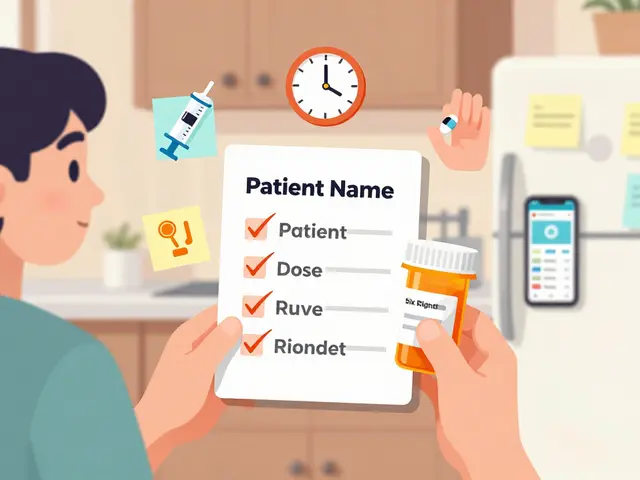Antidepressants: What They Are and How They Help
Feeling down for weeks? Antidepressants are medicines designed to lift mood, ease anxiety, and give you the energy to get through daily life. They target chemicals in your brain—mainly serotonin, norepinephrine, and dopamine—to balance mood signals.
Most people start with an SSRI (selective serotonin reuptake inhibitor) because it’s effective for many and has a relatively mild side‑effect profile. If an SSRI doesn’t work, doctors may try an SNRI (serotonin‑norepinephrine reuptake inhibitor), a tricyclic, or a newer drug like bupropion.
Common Types of Antidepressants
SSRIs – Examples: fluoxetine, sertraline, citalopram. These block serotonin reabsorption, keeping more of it available in the brain.
SNRIs – Examples: venlafaxine, duloxetine. They affect both serotonin and norepinephrine, helping with pain as well as mood.
Tricyclics – Examples: amitriptyline, nortriptyline. Older class, effective but can cause more side effects like dry mouth and dizziness.
Atypical antidepressants – Examples: bupropion, mirtazapine. They work by different pathways, useful if you have trouble sleeping or want to quit smoking.
Side Effects, Safety Tips, and What to Expect
Most people notice mild nausea, headache, or a temporary dip in energy during the first two weeks. These usually fade as your body adjusts. Serious concerns—like increased suicidal thoughts, especially in teens—need immediate doctor attention.
Never stop an antidepressant abruptly. Stopping suddenly can cause withdrawal symptoms (often called discontinuation syndrome) such as dizziness, irritability, or flu‑like aches. Tapering the dose under medical supervision is the safe way to quit.
Alcohol mixes poorly with many antidepressants, increasing drowsiness and liver strain. Talk to your pharmacist about any over‑the‑counter meds or supplements you take; St. John’s Wort, for example, can clash with SSRIs.
Give the drug at least 4‑6 weeks before deciding if it works. Some patients feel a noticeable lift sooner, while others need more time. Consistency is key—take your dose at the same time each day.
If you’re pregnant, nursing, or have a chronic condition, discuss risks and alternatives with your doctor. Some antidepressants are safer in pregnancy, while others may affect blood pressure or blood sugar.
Finally, medication is just one piece of the puzzle. Pairing antidepressants with therapy, regular exercise, and good sleep habits dramatically improves outcomes. Think of the pill as a catalyst—your lifestyle choices provide the fuel.
Ready to start or switch medication? Write down any questions, bring a list of current meds, and be open about side effects you experience. Your doctor can tailor the best plan for you.
Hi there! I'm a health enthusiast who's keen on understanding different medications, and today I'm diving into a comparative analysis of Bupropion and other antidepressants. I'll be discussing the pros and cons, the side effects, and the effectiveness of each type of medication. Remember, it's all about finding the right treatment for you. Let's start this journey to explore and better understand our mental health.
Categories
Archives
Recent-posts
Intra-Articular Steroid Injections: What You Need to Know About Systemic Side Effects and Limits
Dec, 16 2025



 Medications
Medications




